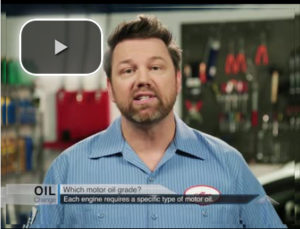If there is one thing we can guarantee in the auto repair business, it’s the simple fact that regular oil changes are the key to  vehicle preservation. So why are oil changes important? Motor oil is the lifeblood of your engine, and when it is depleted or full of sludge, you can be sure that your engine is going to suffer. The engine oil is responsible for lubricating the engine components, ensuring that they all work together smoothly – can you imagine what would happen if there wasn’t any oil? Complete engine failure!
vehicle preservation. So why are oil changes important? Motor oil is the lifeblood of your engine, and when it is depleted or full of sludge, you can be sure that your engine is going to suffer. The engine oil is responsible for lubricating the engine components, ensuring that they all work together smoothly – can you imagine what would happen if there wasn’t any oil? Complete engine failure!
There are literally thousands of explosions occurring every minute inside a vehicle’s engine and the heat from those explosions can be immense. This is another area where oil helps; motor oil actually draws heat away from the combustion chamber, which keeps the engine from overheating. When the oil is low, the heat rises and your engine is in danger of overheating.
Another key job of motor oil is to prevent carbon buildup and keep debris from entering the engine compartment. While the oil works as a barrier for metal on metal contact, there is still contact, and as a result tiny metal shavings end up floating around. As the oil moves through the different engine components, it picks up these metal shavings and they are trapped in the oil filter. The oil will also pick up carbon – a byproduct of combustion – as it moves around, which is one of the main reasons why regular oil changes are so important. Oil will grow more and more acidic over time as it accumulates these byproducts and can actually get so corrosive that it can etch engine surfaces.
One thing that consumers often overlook when they change their oil, is the type of oil used, but this is a vital part of the oil change process. We are seeing a shocking number of vehicles here in the auto shop with engines damaged by wear and sludge buildup, because they have used the wrong type of oil in their engine. The type and viscosity of the oil is just as important as the oil change itself. Every engine is designed differently and requires a specific type of oil to run efficiently. Fortunately, every vehicle lists the exact type of oil needed and what specifications it needs to meet.
One question we are asked all the time is if synthetic oil is really necessary and worth the extra cost. Well, we believe that synthetic is much more superior than conventional oil and well worth the extra couple dollars. There are some vehicles that require synthetic and will suffer engine damage if conventional oil is used, but even for those where it isn’t specified, synthetic oil can really help. It is a much higher-quality oil and is infused with longer-lasting additives that work to keep your engine cleaner. It also flows faster and can improve cold start efficiency.
So whether you are a DIY oil change guy or gal or whether you take your vehicle into an auto repair shop to have your oil changed, always, always, always make sure the correct oil is being used. Take a minute to pull out your vehicle manual and double check that you, or your automotive technician, is up to date on what oil your vehicle requires.
Schedule My Appointment Now!
